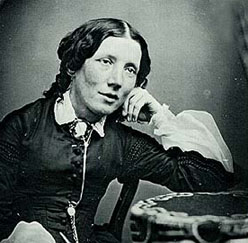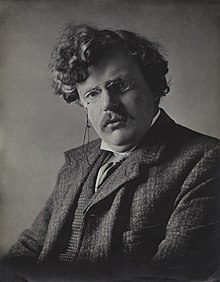14 June 1811
Harriet Beecher Stowe, an American abolitionist and author, was born

Harriet Beecher was born June 14, 1811, the seventh child of a famous protestant preacher. Harriet worked as a teacher with her older sister Catharine: her earliest publication was a geography for children, issued under her sister's name in 1833. In 1836, Harriet married widower Calvin Stowe: they eventually had seven children. Stowe helped to support her family financially by writing for local and religious periodicals. During her life, she wrote poems, travel books, biographical sketches, and children's books, as well as adult novels. She met and corresponded with people as varied as Lady Byron, Oliver Wendell Holmes, and George Eliot. She died at the age of 85, in Hartford Conneticutt.
While she wrote at least ten adult novels, Harriet Beecher Stowe is predominantly known for her first, Uncle Tom's Cabin (1852). Begun as a serial for the Washington anti-slavery weekly, the National Era, it focused public interest on the issue of slavery, and was deeply controversial. In writing the book, Stowe drew on her personal experience: she was familiar with slavery, the antislavery movement, and the underground railroad because Kentucky, across the Ohio River from Cincinnatti, Ohio, where Stowe had lived, was a slave state. Following publication of the book, she became a celebrity, speaking against slavery both in America and Europe. She wrote A Key to Uncle Tom's Cabin (1853) extensively documenting the realities on which the book was based, to refute critics who tried to argue that it was inauthentic; and published a second anti-slavery novel, Dred in1856. In 1862, when she visited President Lincoln, legend claims that he greeted her as "the little lady who made this big war": the war between the states. Campaigners for other social changes, such as Caroline Norton, respected and drew upon her work.
Когда вам становится очень туго, и все оборачивается против вас, и, кажется нет сил терпеть ни одной минуты больше, ни за что не отступайте, именно в такие моменты наступает перелом в борьбе.
Самые горькие слезы над гробом мы проливаем из-за слов, которые так и не были сказаны, и поступков, которые так и не были совершены.
Богатые дары, которые подают отворачиваясь, подают холодной рукой, не стоят и единой слезы, пролитой от всего сердца.
14 June 1936
Gilbert Keith Chesterton, an English writer, died
Gilbert Keith Chesterton, an English writer, died

Gilbert Keith Chesterton was born in London, England on the 29th of May, 1874. Though he considered himself a mere "rollicking journalist," he was actually a prolific and gifted writer in virtually every area of literature. A man of strong opinions and enormously talented at defending them, his exuberant personality nevertheless allowed him to maintain warm friendships with people--such as George Bernard Shaw and H. G. Wells--with whom he vehemently disagreed.
Chesterton had no difficulty standing up for what he believed. He was one of the few journalists to oppose the Boer War. His 1922 Eugenics and Other Evils attacked what was at that time the most progressive of all ideas, the idea that the human race could and should breed a superior version of itself. In the Nazi experience, history demonstrated the wisdom of his once "reactionary" views. His poetry runs the gamut from the comic The Logical Vegetarian to dark and serious ballads.
Though not written for a scholarly audience, his biographies of authors and historical figures like Charles Dickens and St. Francis of Assisi often contain brilliant insights into their subjects. His "Father Brown" mystery stories, written between 1911 and 1936, are still being read and adapted for television.
His politics fitted with his deep distrust of concentrated wealth and power of any sort. Along with his friend Hilaire Belloc and in books like the 1910 What's Wrong with the World he advocated a view called "Distributism" that is best summed up by his expression that every man ought to be allowed to own "three acres and a cow." Though not known as a political thinker, his political influence has circled the world. Some see in him the father of the "small is beautiful" movement and a newspaper article by him is credited with provoking Gandhi to seek a "genuine" nationalism for India. Orthodoxy belongs to yet another area of literature at which Chesterton excelled. A fun-loving and gregarious man, he was nevertheless troubled in his adolescence by thoughts of suicide. In Christianity he found the answers to the dilemmas and paradoxes he saw in life. Other books in that same series include his 1905Heretics and its sequel Orthodoxy and his 1925 The Everlasting Man.
Chesterton died on the 14th of June, 1936 in Beaconsfield, Buckinghamshire. During his life he published 69 books and at least another ten have been published after his death. Many of those books are still in print.
Я никогда не принимал всерьез свои книги, но принимаю всерьез свои мнения.
Зло подкрадывается, как болезнь. Добро прибегает запыхавшись, как врач.
Надежда — это способность надеяться в безнадежном положении.
Первая из самых демократических доктрин заключается в том, что все люди интересны.
Никакая война не заслуживает оправдания, кроме войны оборонительной. А оборонительная война, по самой своей природе и по определению, — это такая война, с которой человек возвращается избитый, истекающий кровью и не способный похвалиться ничем, кроме того, что ему удалось выжить.
It is a day for all Americans to celebrate and show respect for their flag, its designers and makers. Their flag is representative of their independence and their unity as a nation.....the nation, under God, indivisible. Their flag has a proud and glorious history. It was at the lead of every battle fought by Americans. Many people have died protecting it. It even stands on the surface of the moon.
Комментариев нет:
Отправить комментарий